Every time I tell my kids that we’re going to the zoo this coming weekend (or the next one), I am faced with such a wave of genuine delight that the little curious boy inside me awakens, anticipating passing through the wide gates decorated with images of animals and finding myself in this magical world of wild nature right in the middle of the city...
Even now, when I read a lot of books and posts, watch lots of videos about the daily life of animals in zoos and the people who care for them, I am always interested in similar threads with zookeepers unveiling new secrets and sharing incredible stories about their work. If you share my beliefs, then welcome to this list!
More info: Reddit
#1
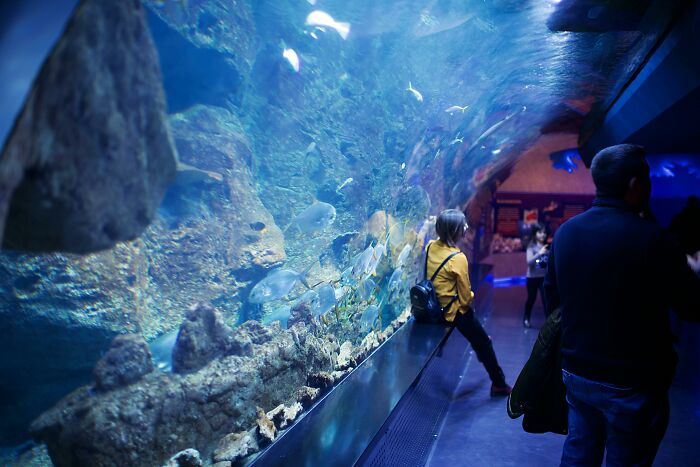
Image credits: Barbarella_ella
#2
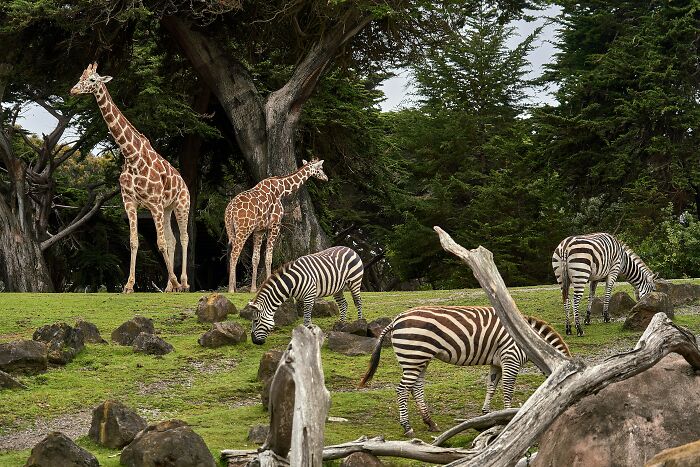
Image credits: TheWalkingMeg
#3
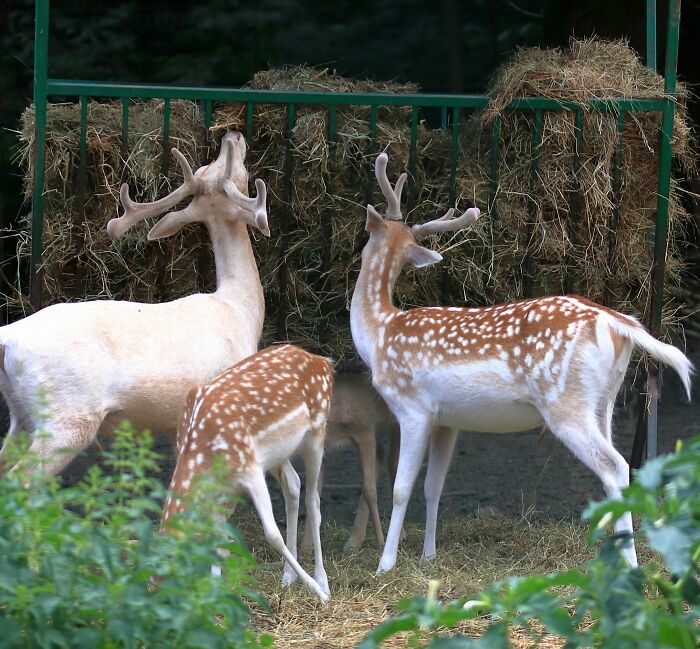
Image credits: DeathMonkey6969
It is believed that the first prototypes of zoos appeared as early as 3500 B.C. in ancient Egypt, where there was always some nosy pharaoh who was interested in observing animals not only in their natural habitat. And closer to the first century B.C., zoos in the courts of ancient monarchs began to acquire a scientific function - after all, scientists realized that it was a much more convenient way to observe the life of animals. It’s not surprising that, for example, zoos in Ancient China were called “Gardens of Knowledge.”
#4
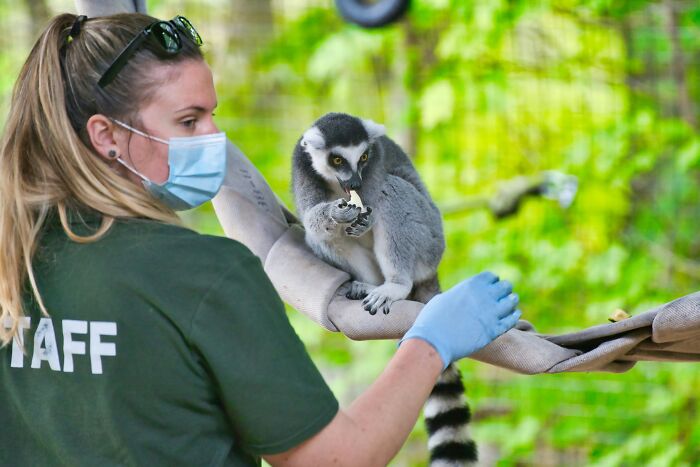
Image credits: Frantastic79
#5
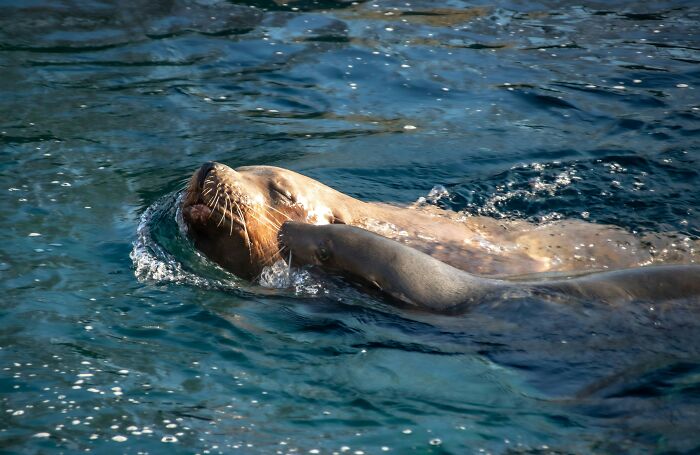
Image credits: masterslut
#6
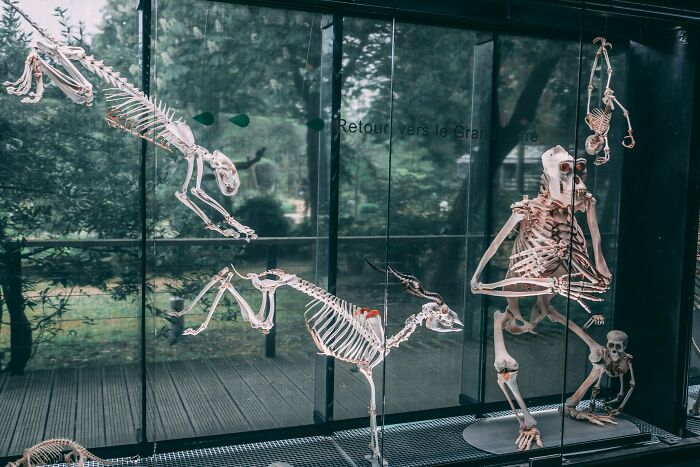
Image credits: Blondebitchtits
However, zoos began to carry out a full-fledged educational function closer to our time, starting from the end of the 18th century, and by the middle of the last century they finally went through the path of transformation from entertainment establishments for a bored public into serious scientific institutions. Animals began to move from cramped cages into spacious enclosures imitating their natural habitat, their diets became more balanced, and zoos themselves, in particular, began to work on preserving species on the verge of extinction.
#7
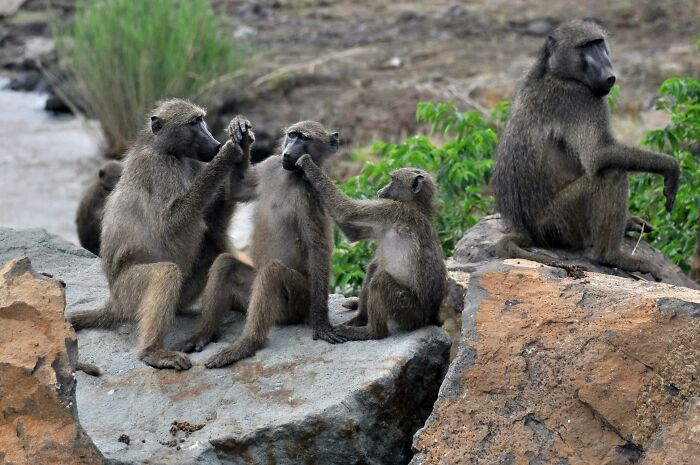
Image credits: Professional-Bee-137
#8
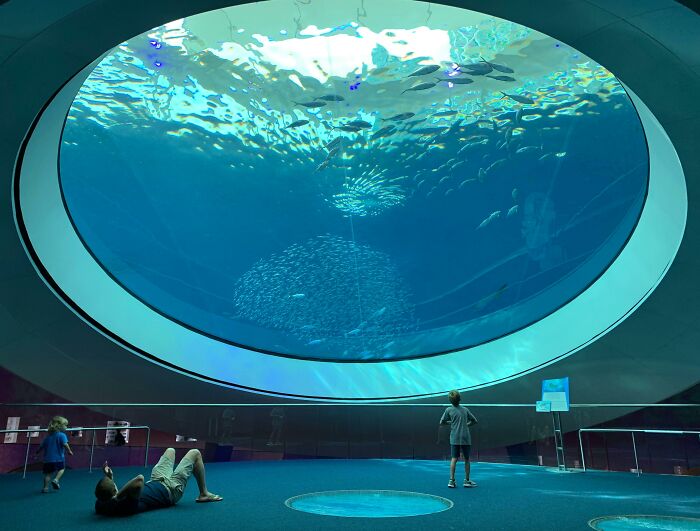
Image credits: SunflowerPrincesy
#9
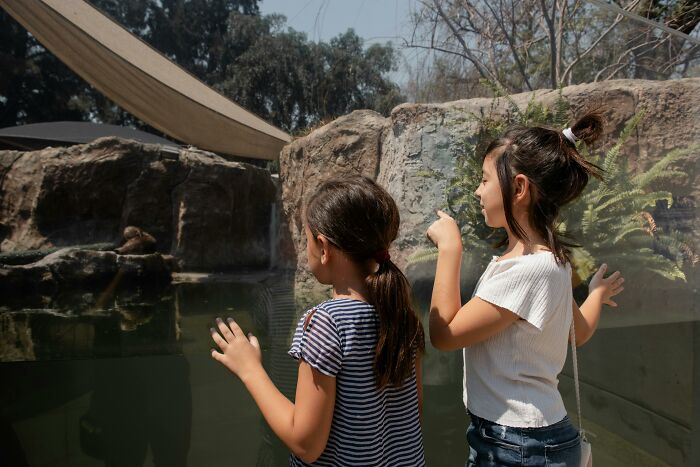
Image credits: Civilized_Primate
In fact, there are many biological species of animals that either no longer exist in the natural environment or cannot adapt to changed living conditions. Changed, however, as a result of human activity - so that scientists in zoos, in fact, are trying to correct the mistakes that our ancestors made.
And along this path, zoos are achieving certain successes - for example, last year, the staff of the Prague Zoo managed to achieve, for the first time in Europe, the birth of the very rare Chinese pangolin, named 'Little Cone.' And when the process of restoring the population inside the zoo is already gaining momentum, biologists carefully return animals to their natural habitat. This process is called ‘reintroduction’, and it is damn complicated, but in fact, it plays a very big role in preserving the biodiversity of our planet.
#10
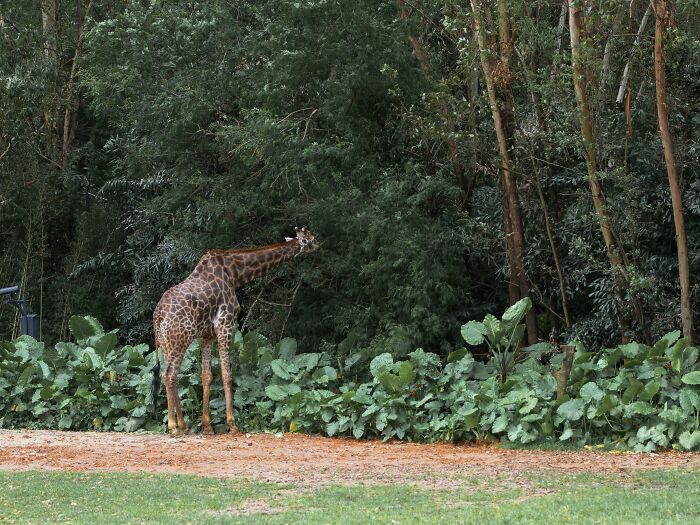
Image credits: Cody6781
#11
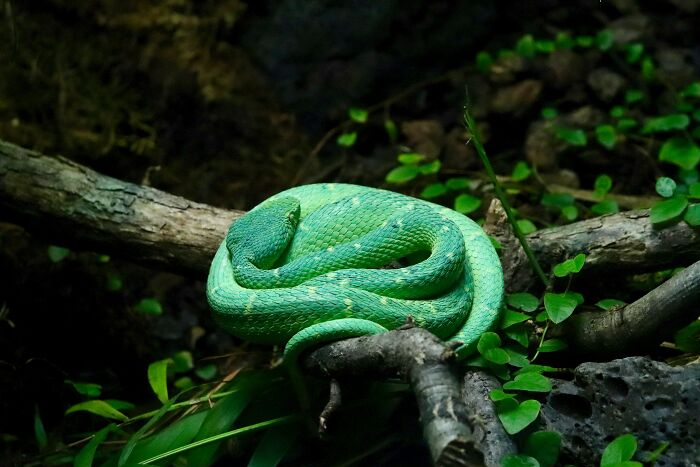
Image credits: _EbenezerSplooge_
#12
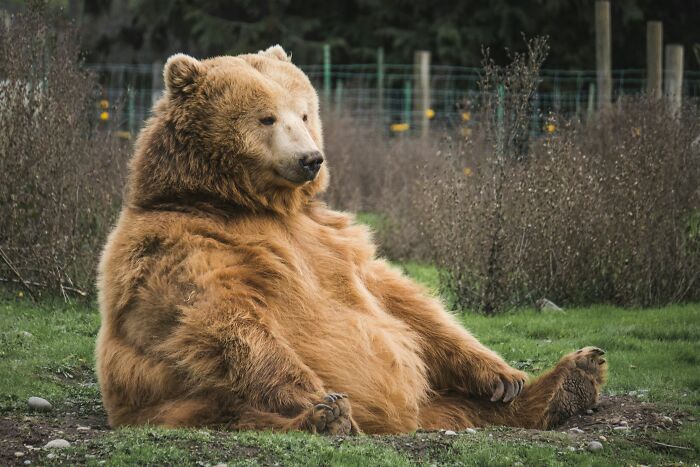
Image credits: Snoobs-Magoo
Returning to my children's zoo experiences, I had, and still have, one strict rule. A proper zoo in my book should have an elephant. An elephant is definitely a must. Well, in this collection of stories you will find narratives, funny and sad, not only about elephants, but also about many wonderful animals that actually live right next door to us. You just need to buy a ticket and come to the zoo one wonderful Sunday morning, like when you were a kid - to see them and enjoy.
#13
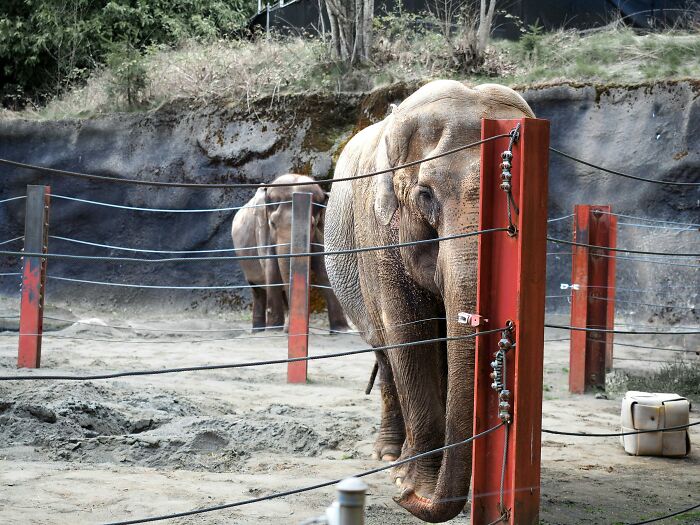
Image credits: ilikemagnets33
#14

Image credits: iloveschnauzers
#15

Image credits: bucketsofpoo
#16
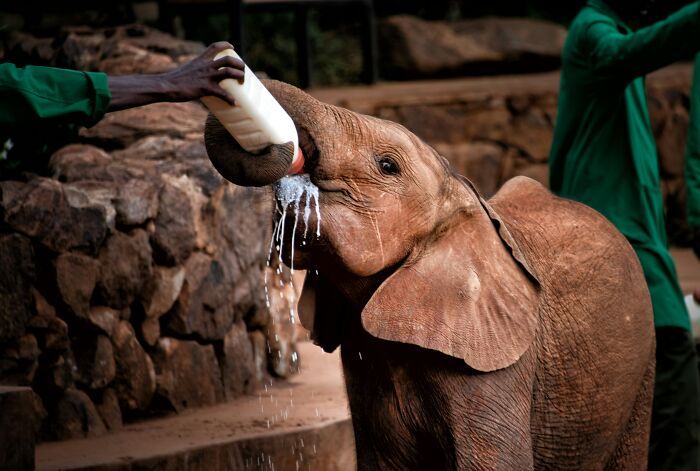
Image credits: agent-assbutt
#17
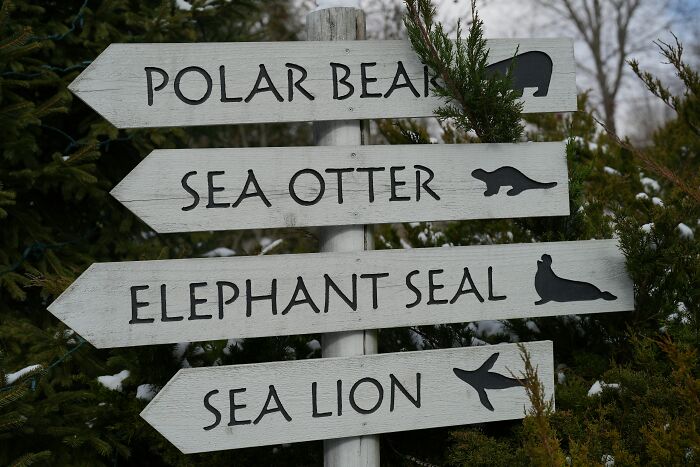
Image credits: PerInception
#18
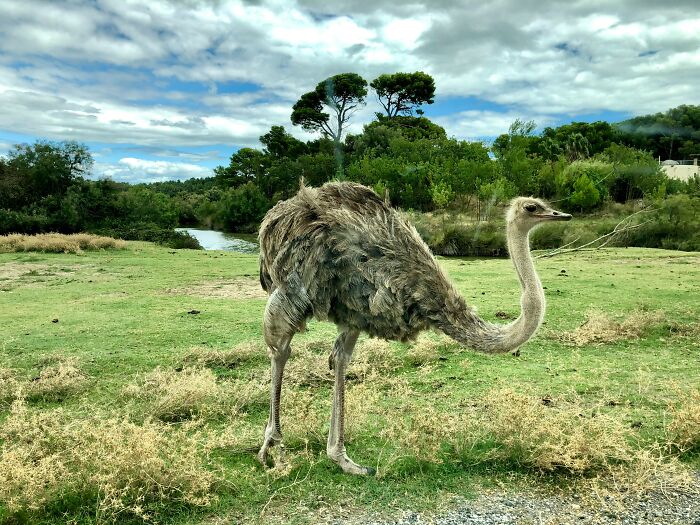
Image credits: Key_Corgi_7435
#19
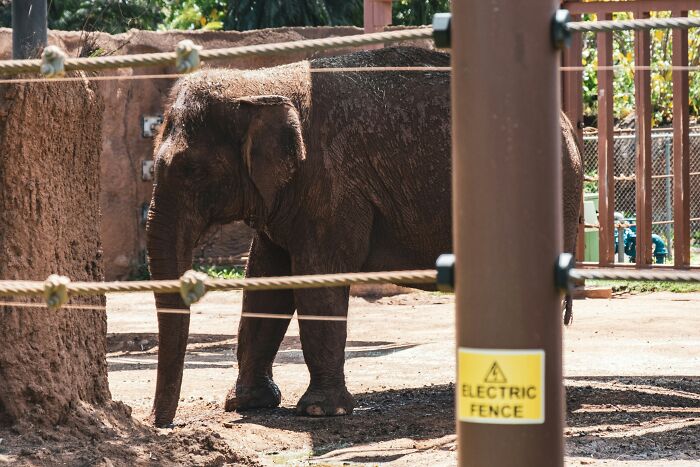
Image credits: Unable_Strawberry_69
#20
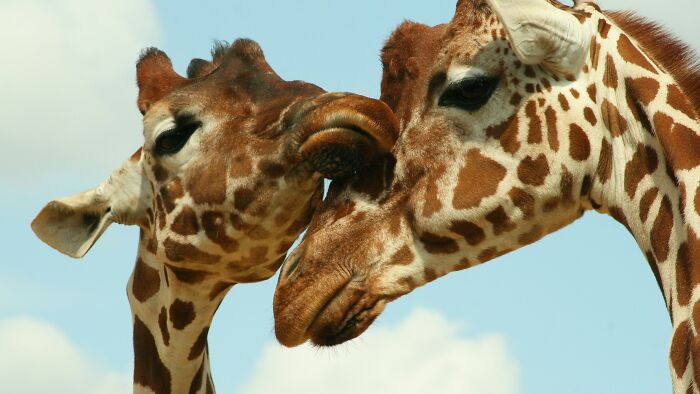
Image credits: GhostLuu
#21
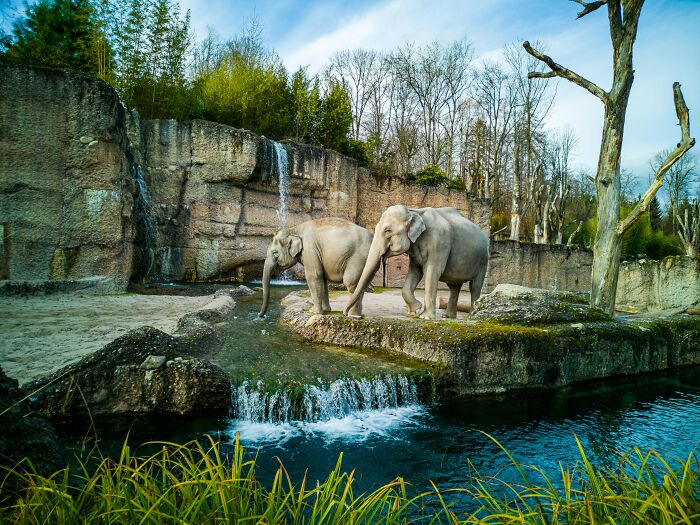
Image credits: Dull-Mix-870
Not a zoo but a large public aquarium. The animals are fed the same restaurant quality seafood you eat. Sea otters are extremely expensive to keep for this reason. So are sharks, dolphins, beluga whales. And anything tropical and saltwater.
And the keepers are working for love because God knows it sure isn't money.If an animal dies of natural causes we sometimes feed them out to other animals. Had a zebra pass and we fed out to our lions. A local farmer had a calf that was kicked in the head by its mom and we fed the whole carcus out to our African wild dogs. Both times were during public visiting hours so I guess it's not necessarily a secret just not well known.Many 'vegetarian' animals are also feed a small amount of meat. Because in the wild the plants, vegetables, and fruits they eat often has bugs in in them that they also eat.
It's not really a secret and if you ask a keeper about an animal's diet they'll tell you, but many people have this notion of herbivores only eat plants and carnivores only eat meat.
The reality is there are very few pure herbivore or carnivore in the wild. One of the first things many predators eat from a large prey animal is the stomach and large intestines to get that partly digested plant matter.I don't know about wouldn't believe, but it's nothing like TV shows about zoos make it appear (at least most of the time). Those shows obviously show the interesting bits. In reality the job is 90% cleaning. You will spend most of your time picking up s**t or cleaning windows.
Depending on the zoo, you may never get to do things like hand-rearing orphaned animals - the bosses tend to claim "fun" things like that for themselves. You're just there for day-to-day maintenance.
It is very hard work, physically speaking, and pays poorly. You're outdoors in all seasons and weathers. You rarely get weekends off, or even two days in a row. No time off at Christmas or other holidays. You really have to be committed!Penguins are so god damn stabby with their faces.
Also, sometimes the reason why animals aren't in their exhibits is because they're bastards and had to be removed from the main exhibit. We had a steller sea lion breeding colony. One of the most endangered marine mammal species on the planet. But we couldn't let our male in with his females because at the apex of the breeding season this goofy f****r killed one of them and then grievously injured another. So he lived out back, alone, because he was an a*****e.I used to work at a natural history museum next to a zoo. Often when an animal was euthanized it would be donated to us. My colleagues once took a giraffe apart with a chain saw, put the parts in the bed of someone’s personal pickup and drove it over. From there the animal was taken apart, and the meat and organs were separated from the skeleton. Then a colony of dermestid beetles would remove the remaining flesh from the skeleton. There were 8 colonies and it took about a year for them to clean a large skeleton like a giraffes. Then the bones and hide and other salvaged parts were preserved in the museums collection. During my tenure I saw a lion, a gorilla, a giraffe, and more monkeys than I could count.Not a zookeeper but I have a few zookeepers in my friends group. When I ask questions outside the zoo their eyes kinda glaze over and they parrot the things I know they tell guests: "A lion is a carnivore! So they eat meat! In the wild..."
but every once in a while they slip up or admit something in an unrelated conversation, and I have learned things such as
-the African wild dogs don't get frozen meat anymore because they roll on it and smear it everywhere instead of eating it
-the baboons somehow insisted on listening to the song "Mobile" by Avril Lavigne on repeat at one point, thus f*****g up one of my friends Spotify recommendations.I volunteer at an aqurium and the people always ask about whether the sharks that are in with the fish ever eat the fish officially we say, “we keep them well fed enough that they don’t”, but on more then one morning on my initial walk around I have found remains of fish that definitely weren’t feed fish. On a particularly memorable occasion I found the head of a large porgy just sitting on the bottom. A diver went in and got it before guests arrived.I don't feel there's anything that people wouldn't believe, but there's definitely a lot people don't think about.
Many of the animals may be on some form of birth control. In the case of great apes, it's probably the same one most humans take.
Zoo's don't deliberately hide animals from you, but that doesn't mean they're aren't animals that are not visible to the public. Animals can be off habitat for any number of reasons (social dynamic issues, special treatment, quarantine, solitary species, etc).
Keepers spend WAY less time than you think directly interacting with the animals.
Keepers have college degrees. That wasn't always the case, but you won't be considered for a job anymore without one unless you have a ton of experience. .In the case of most large Zoo's (including specifically the San Diego Zoo, and Wild Safari Park which is like a sister zoo), the money spent on maintaining & curating the plant life is many multiples more than the money spent on maintaining & curating animals. The staff to maintain the plant life is many multiple's larger than the staff for animals, too.Not a zookeeper myself - but my girlfriend used to work at a zoo back in her home town before moving to the UK, and when we went to visit her family last year we decided to take a trip to the zoo aswell.
Almost as soon as you enter, one of the first buildings you can go into has a large cordoned off area by the door full of super cute rabbits and guinea pigs, with only a small barrier surrounding them so kids can see them clearly. This section is apparently always really popular with families, as the kids love to see the animals hopping around, munching on vegetables and generally being really cute.
A few meters away from this pen was a large glass cage built into the wall, inside of which was a very large, mean looking snake. As I was looking at it, I made a comment about it's size - to which my girlfriend responded;
*"Guess what they feed it?"*
Spoiler: every couple of days they go to the pen, grab one of those same cute little bunnies the kids were all fussing and cooing over, and toss it into the cage for the snake to munch on.
F*****g brutal.Have you watched the series called The Zoo based in the Bronx? There's also an aquarium version. It's super interesting & goes into great detail about how the animals are cared for behind the scenes.
My favorite topic they cover is the enrichment exercises. They put a lot of research & detail into keeping the animals engaged & entertained. The best one was the see through tongue maze they built for an ant eater to explore.Was on an inside the operation - behind the walls corporate trip to big western USA zoo. Two employees took us around unseen side of elephant enclosure. Picture gate made of metal bars about 4 inches wide and big elephant tall. Employees repeatedly said, “Stay 10 feet from bars.” Elephant had recently grabbed someone with its trunk. They were bludgeoned to death as elephant repeatedly slammed them into gate.A book I read by a zoo vet said in the good old days, if an exotic animal died , and the death was not infectious, they would have a BBQ in the back lot for employees. For example, roasted Impala.We feed the big cats on failed race horses. We have to buy the horses at live horse auction. we compete against the dog food companies in buying the horse as they are the broken horses.
However we can't feed the horse straight to the lion as horse racers d**g the s**t out of their horses with unknown d***s. they claim its a clean industry but its not.
so horses need to be able to hobble around a paddock for 6 months or so before we feed them to the lion.Zookeepers frequently make less than $25 per hour and zoo interns aren't paid and it's competitive, disgusting, thankless work. I interviewed for an admin job at a top 5 zoo and was shocked the job I was interviewing for paid more than most zookeeper jobs that were posted. I didn't even get the job I interviewed for, but talked to a zookeeper turned nurse to humans in-depth later, and she just spilled the beans about how thankless/underfunded of a field it is. I encourage every young person I meet who's interested in zoology to research it heavily because its *not* a job for those who want money or prestige or to smell good, ever.Asked my girlfriend who used to work for the Nashville Zoo. She said that there at least, the animals have different stage names that the public know them by than the keepers use for them.My neighbor is a vet tech at our local zoo, the other year she bought home an ostrich egg. They gifted it to me since it happened to be my birthday
But yeah, not a keeper but apparently at my local zoo the staff just get ostrich eggs occasionally.I met a guy who worked at a zoo once and he said almost any animal could escape/ get out if they really wanted to. But most don’t.Sometimes if there is an excess of a certain breed of animal, let’s say giraffes, that none of the other nearby zoos can take in, will be given to carnivorous animals in the zoo, such a lions, tigers etc. (At least in Europe).I believe there are three private governing bodies (accreditation organizations) in the U.S., and the industry is not monitored by local, state, or federal oversight. As with all organizations like these, money and politics plays a big part in who/when a zoo gets accreditation This of course leads to a fox-watching-the-hen-house type of scenario where what's best for the animals is not always what's best for the zoo.




























